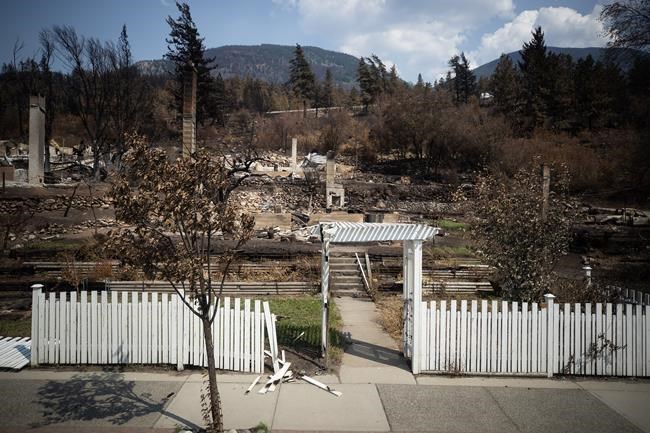Dave Phillips, senior climatologist with Environment Canada, has been compiling a Top 10 list of Canada's weather events for more than two decades. Here are his picks for 2021:
1. Heat dome in Western Canada: At the end of June, a sprawling high-pressure ridge with incredible strength, height, scope and persistence compressed air enough to cook the atmosphere and dissipate clouds. Lytton, B.C., set an all-time Canadian high of 49.6 C. Days later, the town was destroyed in a wildfire.Â
2. Flooding in British Columbia: Nearly a month's worth of rain poured into the Fraser Valley over one November weekend, flooding farms and nearly paralyzing Canada's east-west traffic as it washed out major highways.
3. Drought: Years of dry weather culminated in drought across much of Canada's agriculture belt. At one point, about 99 per cent of the Prairies grain region was classified as a drought scene.
4. Wildfires: Heat plus drought equaled a wildfire season that burned out of control across Canada this year. B.C. saw forests burned equal to 1.5 times the size of Prince Edward Island. By July 10, fires were out-of-control in every province and territory except for Atlantic Canada and Nunavut.
5. Heat waves: Canada rode out four heat waves in the summer, the fifth warmest season in the past 74 years. Montreal had its warmest August in 150 years, while nighttime temperatures in cities including Toronto remained over 20 C — and humid.Â
6. Tornadoes: Tornadoes strong enough to shift homes and lift cars tore repeatedly through Ontario and Quebec in June and July, killing a man in a town north of Montreal.Â
7. Arctic blast: February saw every part of Canada from Victoria to St. John's under freezing conditions — some of them extreme. Nighttime windchills on the Prairies sank the temperature to -55 C.
8. Calgary hailstorm: A 20-minute hailstorm on July 2 saw ice pellets ranging in size from dimes to golf balls, part of a storm that caused local flooding and 200 calls to emergency services over two hours.Â
9. Hurricane Larry: More than 60,000 Newfoundlanders lost power when Larry roared ashore on Sept. 11 with winds of up to 180 km/h and heavy rains. Coastal infrastructure was damaged and roads were closed for days.Â
10. Prairie Clipper: Winds in January recorded at least 100 km/h in 76 different locations, 13 of which set records. There may have been more, but winds blew away measuring equipment.
This report by The Canadian Press was first published Dec. 16, 2021.
The Canadian Press
Note to readers: This is a corrected story. Previous version had month as September.



